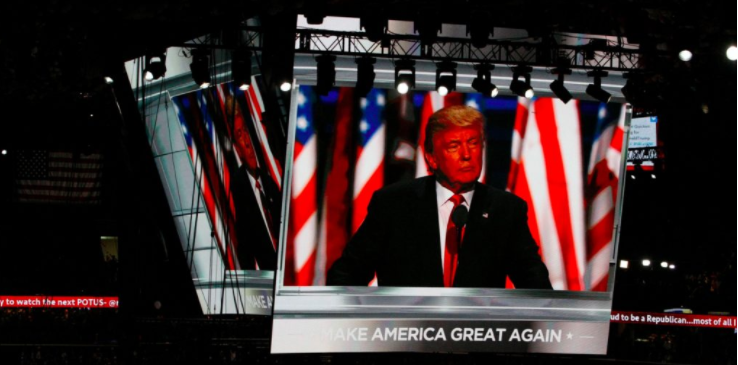
After a bitter election marked by controversy and negativity from both sides, Donald John Trump was elected as the 45th president of the United States on Tuesday after defeating Democratic opponent Hillary Clinton. The business mogul and former reality TV star emerged as the victor by securing 279 electoral votes compared to Clinton’s 228.
Trump’s comments regarding women and sexual assault accusations made against him, combined with Clinton’s controversial email scandal and health concerns, firmly divided the voting population between the two major parties.
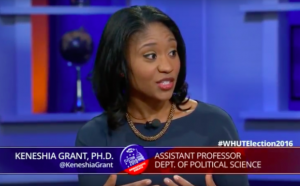
According to Keneshia Grant, associate professor of political science at Howard University, Trump used that split to his advantage to secure the presidency.
“The deciding factor would have been turnout,” Grant said. “Trump has activated a segment of the American population that we did not think about as a strong voting block with a singular interest —where that singular interest is defined by them as ‘Making America Great,’ but might be defined by others as making America what it used to be in the past.”
While expert predictions of Trump’s presidency are less than favorable, some feel it could facilitate communication between both parties at the national level.
“He will actually have to reach out to [Democrats] given the economic problems that are likely to ensue,” said Lorenzo Morris, Howard University professor of political science. “So they will have a vehicle to getting trade deals or a vehicle to getting some environmental protection.”
“He is very anti-environment, but environment is good for building small businesses, so he might have to reach out to them at some level.”
Born in 1946 in Queens, N.Y., to a real estate-developer father and a United Kingdom native mother, Trump was an assertive child. His parents enrolled him in the New York Military Academy, where he excelled academically, socially and athletically.
Trump then attended Fordham University in New York and later transferred to Wharton School of Finance at the University of Pennsylvania. In 1968, he graduated with his degree in economics.
Trump began his career in real estate with his father at Elizabeth Trump & Son. Trump helped facilitate the expansion of the company’s holdings by adopting a more lax mentality regarding loans based on equity in their apartment complexes.
In 1971, he gained control of the company and renamed it Trump Organization. He became chiefly involved in large Manhattan building projects that he predicted would lead to economic opportunities for his company.
He continued to expand the Trump empire into the 21st century with notable acquisitions such as Holiday Inn soon after 1984, which would later become Trump Plaza Hotel and Casino.
In addition to his ventures in real estate and business, Trump also explored the worlds of reality television and politics. In 1999, Trump established an exploratory committee, which aided his decision to run in the 2000 presidential election, however he withdrew from the race following the California primary.
Using the exposure he received from his short campaign, he began producing and starring on NBC’s “The Apprentice.”
In June 2015, Trump made his return to the political arena by announcing his entrance in the 2016 presidential election.
Trump drew from his well of experience in business to shape his 2016 campaign and appeal to working class Americans.
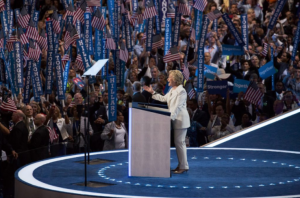
Despite an outpouring of support from factions of the Republican Party, Trump was met with opposition in the wake of various scandals that characterized his campaign and the campaigns of others.
While some believed that the email scandal involving Clinton would impact the Trump campaign positively and Clinton’s negatively, results of a study done by a Morris and other Howard University faculty in partnership with the National Newspaper Publishers Association showed that coverage of the controversy decreased Trump’s favorability among black voters.
“She rose 8 percentage points in favorability,” said Carolyn Byerly, professor and chair of Howard’s Department of Communication, Culture and Media Studies. “By the same token, Trump dropped from 2 percentage points of favorability to 1.5,”
With a new Trump administration on the horizon, his supporters are relieved and hopeful for the future of a country headed by a leader who pledges to make it great once again.
Kai Sinclair is a junior majoring in journalism at Howard University.






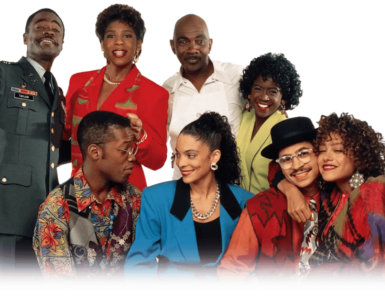

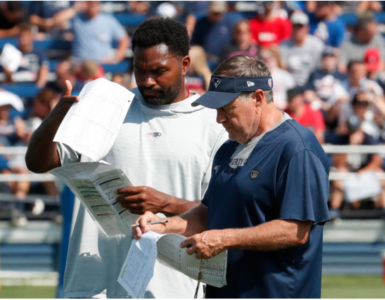
Recent Comments